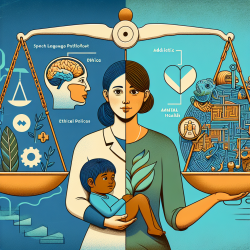In the article "Resituating the Ethical Gaze: Government Morality and the Local Worlds of Impoverished Indigenous Women" by Caroline L. Tait, the focus is on the profound impact of government policies on the lives of impoverished Indigenous women in Canada. By examining the life history of Wanda, a First Nations woman, the article raises critical questions about moral governance and the need for ethical policies. As practitioners, it is crucial to understand these dynamics to improve outcomes for our clients.
Key Findings and Implications for Practitioners
The research highlights several significant findings:
- Government policies often exacerbate the challenges faced by Indigenous women, leading to a cycle of poverty, mental illness, and substance abuse.
- There is a lack of comprehensive, women-centered, and culturally safe interventions for Indigenous women.
- Policies frequently fail to provide long-term support, resulting in repeated cycles of crisis intervention rather than sustained recovery.
As practitioners, we must be aware of these systemic issues and advocate for policies that prioritize the well-being of our clients. Here are some practical steps to implement the research findings:
1. Advocate for Ethical Policies
Encourage policymakers to develop and implement ethical policies that do not leave individuals worse off than before. Policies should focus on providing long-term, comprehensive support rather than short-term crisis interventions.
2. Provide Culturally Safe Interventions
Ensure that interventions are culturally safe and tailored to the unique needs of Indigenous women. This includes understanding their cultural background, values, and experiences.
3. Offer Comprehensive Support
Provide holistic support that addresses the multiple needs of clients, including mental health, substance abuse, and social services. Coordination between different service providers is essential to ensure continuity of care.
4. Conduct Further Research
Engage in further research to understand the long-term impact of government policies on Indigenous women and their families. Data-driven research can help in advocating for more effective policies and interventions.
Conclusion
The article by Caroline L. Tait underscores the need for ethical policies and comprehensive support for Indigenous women. As practitioners, we have a responsibility to advocate for and implement these changes to improve outcomes for our clients.
To read the original research paper, please follow this link: Resituating the ethical gaze: government morality and the local worlds of impoverished Indigenous women.










